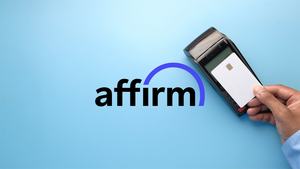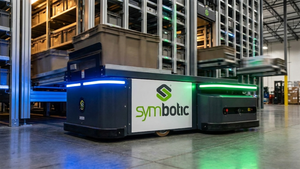- Clinically meaningful anti-tumor activity of ZL-1310 observed in heavily pretreated population of patients with small cell lung cancer (SCLC) across dose escalation and expansion cohorts
- In second-line (2L) SCLC, objective response rate (ORR) was 67% across all dose levels (n=33) and 79% at 1.6 mg/kg dose (n=14)
- Median duration of response has not yet been reached, with 29 of 38 responders remaining on study; 27 of 31 patients with stable disease remaining on study, the majority of whom had tumor regressions
- ZL-1310 demonstrated a well-tolerated safety profile at target doses of less than 2.0 mg/kg, with Grade ≥3 treatment-related adverse events (TRAEs) of 6%, and no drug discontinuations
- Company plans to initiate pivotal trial in 2L SCLC with selected optimal dose later this year
- Zai Lab to host investor conference call and webcast to discuss data and clinical trial plans on June 2, 2025, at 7:00 a.m. CT / 8:00 a.m. ET / 8:00 p.m. HKT
Zai Lab Limited (NASDAQ: ZLAB; HKEX: 9688) today announced that updated data from an ongoing, global Phase 1a/1b clinical trial (NCT06179069) evaluating zocilurtatug pelitecan, or ZL-1310, the Company’s potential first-in-class, Delta-like ligand (DLL3) antibody-drug conjugate (ADC) for patients with extensive-stage small cell lung cancer (ES-SCLC), will be presented today during a poster session at the 2025 American Society of Clinical Oncology (ASCO) Annual Meeting. The presentation includes updated results from the dose escalation portion and the first presentation of dose expansion data from a total of 89 enrolled patients across six dose cohorts.
“Small cell lung cancer is an aggressive disease, with rapid disease progression and brain metastases developing in up to 70% of patients,” said Manish R. Patel, M.D., Florida Cancer Specialists and Sarah Cannon Research Institute. “There remains a significant unmet need for effective and well-tolerated therapies in the relapsed setting. The updated Phase 1 results for ZL-1310 show strong anti-tumor activity, including intracranial responses with a manageable safety profile, reinforcing its potential as a meaningful treatment option for patients with previously treated extensive-stage small cell lung cancer.”
Data from the ongoing Phase 1 monotherapy dose escalation and dose expansion portion of the study as of the data cut-off date of April 1, 2025, include results from 89 patients across six dose cohorts (0.8 mg/kg, 1.2 mg/kg, 1.6 mg/kg, 2.0 mg/kg, 2.4 mg/kg and 2.8 mg/kg). 74 patients had at least one post-baseline tumor assessment per RECIST v1.1.
All patients in the study had progressed following platinum-based chemotherapy, and 90% of patients had progressed after immune checkpoint inhibitors. Of all patients, 33% had failed two prior lines of therapy, and 20% had failed three or more prior lines of therapy, making this a highly pretreated population with limited therapeutic options. 10 patients received a prior DLL3 bi-specific antibody. A total of 30% of patients had brain metastases at baseline. This study included patients in the United States, Europe and China.
Key efficacy results include (n=74):
-
Across all dose levels in the 2L treatment setting (n=33), the unconfirmed objective response rate (uORR) in patients was 67% and the disease control rate (DCR) was 97%. The most promising combination of response and tolerability was observed in the 1.6 mg/kg arm (n=14) with a uORR of 79% and a DCR of 100%.
-
Across all doses and lines of therapy (n=74), of 38 patients with confirmed (n=27) and unconfirmed (n=11) ORR, 29 (76%) remain on study, with the longest responder surpassing nine months of treatment. Eighty-nine percent of patients experienced a reduction in their tumor burden. Of the 31 patients with stable disease, 27 (87%) remain on study.
-
Response rates declined with increased prior treatment burden and higher dose levels, consistent with more advanced disease and potential tolerability limitations above 2.0 mg/kg.
-
Of the 22 response-evaluable patients with baseline brain metastases, a 68% ORR was observed. In patients without prior cranial irradiation, ORR was 86%.
-
Responses were seen in patients following treatment with a prior DLL3 bi-specific across lines of therapy.
-
Median length of follow-up is immature at 3.4 months, making median duration of response not estimable.
Key safety findings include (n=89):
-
ZL-1310 continues to demonstrate a well-tolerated safety profile, particularly in doses less than 2.0 mg/kg.
-
In the dose cohort <2.0 mg/kg, Grade 3 or higher TRAEs occurred in 6% of patients and serious TRAEs in 4%. The most common TRAEs were anemia (Gr≥3 2%) and neutropenia (Gr≥3 4%). There were no treatment discontinuations and no Gr≥3 interstitial lung diseases (ILDs).
-
Across all dose cohorts, Grade 3 or higher TRAEs occurred in 23% of patients and serious TRAEs in 21%. The most common TRAEs were anemia (Gr≥3 11%) and neutropenia (Gr≥3 14%). There were five discontinuations due to TRAEs, all in the higher dose cohort. There were two cases of Gr≥3 treatment-related ILD, one at the 2.0 g/kg dose and one at the 2.4 mg/kg dose.
Based on the safety and efficacy data from this trial, Zai Lab plans to initiate a randomized registrational study in 2L ES-SCLC later this year, evaluating the selected dose of ZL-1310 versus standard of care. Zai Lab is also actively enrolling patients in a front-line SCLC study and in other neuroendocrine carcinomas, with data updates anticipated later this year.
“The safety and efficacy profile of ZL-1310 continues to highlight a compelling opportunity to significantly improve the outcomes for patients with extensive-stage small cell lung cancer and underscores its potential to become the first-in-class DLL3-targeted ADC in this setting,” said Rafael G. Amado, M.D., President, Head of Global Research and Development, Zai Lab. “We are continuing to advance a clear strategy to expand the reach of ZL-1310 across multiple high-need DLL3-expressing solid tumor types, with our first regulatory submission targeted as early as next year.”
Zai Lab will hold an investor conference call and webcast to highlight updated ZL-1310 data at ASCO and outline the next steps in clinical development.
Details regarding the webcast and conference call are as follows:
Date/Time: Monday, June 2, 2025, at 7:00 a.m. CT / 8:00 a.m. ET / 8:00 p.m. HKT, please register at:
Webcast presentation (preferred): https://edge.media-server.com/mmc/p/jnqqzjod
Dial-in: https://register-conf.media-server.com/register/BIc7326906f3764306accd7708d21d2ecb
Presenters: Rafael G. Amado, M.D., President, Head of Global Research and Development, Zai Lab; Manish R. Patel, M.D., Florida Cancer Specialists/Sarah Cannon Research Institute, Sarasota, FL; and Alex Spira, M.D., Ph.D., Co-Director, Virginia Cancer Specialists Research Institute
Details regarding the ZL-1310 poster presentation are as follows:
Title: ZL-1310, a DLL3 ADC, in patients with extensive stage small cell lung cancer: Ph1 trial update
Presenter: Manish R. Patel, M.D., Florida Cancer Specialists/Sarah Cannon Research Institute, Sarasota, FL
Session Title: Poster Session – Developmental Therapeutics – Molecularly Targeted Agents and Tumor Biology
Date/Time: Monday, June 2, 2025, from 1:30 p.m. – 4:30 p.m. CT
Location: McCormick Place Convention Center, Hall A – Posters and Exhibits
Published Abstract Number: 3041
Poster Board: 356
About Small Cell Lung Cancer and ZL-1310
Small cell lung cancer (SCLC) is one of the most aggressive and lethal solid tumors, accounting for ~15% of the approximately 2.5 million patients diagnosed with lung cancer worldwide each year1,2. Additionally, two-thirds of all SCLC patients are diagnosed at extensive stage3.
DLL3 is an antigen overexpressed in many neuroendocrine tumors, such as SCLC, and is often associated with poor clinical outcomes. ZL-1310 comprises a humanized anti-DLL3 monoclonal antibody connected via a cleavable linker to a novel camptothecin derivative (a topoisomerase 1 inhibitor) as its payload. The compound was designed with a novel ADC technology platform called TMALIN®, which leverages the tumor microenvironment to overcome challenges associated with first-generation ADC therapies.
ZL-1310 received an Orphan Drug Designation from the U.S. Food and Drug Administration (FDA) in January 2025, recognizing its potential to treat patients with SCLC.
About the Webcast and Conference Call
All participants must use the link provided above to complete the online registration process in advance of the conference call. Dial-in details will be in the confirmation email which the participant will receive upon registering.
A replay will be available shortly after the call and can be accessed by visiting the Company's website.
About Zai Lab
Zai Lab (NASDAQ: ZLAB; HKEX: 9688) is an innovative, research-based, commercial-stage biopharmaceutical company based in China and the United States. We are focused on discovering, developing, and commercializing innovative products that address medical conditions with significant unmet needs in the areas of oncology, immunology, neuroscience and infectious disease. Our goal is to leverage our competencies and resources to positively impact human health worldwide.
For additional information about Zai Lab, please visit www.zailaboratory.com or follow us at www.X.com/ZaiLab_Global, www.twitter.com/ZaiLab_Global.
Zai Lab Forward-Looking Statements
This press release contains forward-looking statements relating to our future expectations, plans, and prospects, for Zai Lab, including, without limitation, statements relating to our prospects and plans for developing and commercializing next generation ADCs, including ZL-1310, the potential benefits of ZL-1310, and the potential treatment of SCLC and neuroendocrine tumors. These forward-looking statements may contain words such as “aim,” “anticipate,” “believe,” “could,” “estimate,” “expect,” “forecast,” “goal,” “intend,” “may,” “plan,” “possible,” “potential,” “will,” “would,” and other similar expressions. Such statements constitute forward-looking statements within the meaning of the Private Securities Litigation Reform Act of 1995. Forward-looking statements are not statements of historical fact or guarantees or assurances of future performance. Forward-looking statements are based on our expectations and assumptions as of the date of this press release and are subject to inherent uncertainties, risks, and changes in circumstances that may differ materially from those contemplated by the forward-looking statements. Actual results may differ materially from those indicated by such forward-looking statements as a result of various important factors, including but not limited to (1) our ability to successfully commercialize and generate revenue from our approved products, (2) our ability to obtain funding for our operations and business initiatives, (3) the results of our clinical and pre-clinical development of our product candidates, (4) the content and timing of decisions made by the relevant regulatory authorities regarding regulatory approvals of our product candidates, (5) risks related to doing business in China, and (6) other factors identified in our most recent annual and quarterly reports and in other reports we have filed with the U.S. Securities and Exchange Commission (SEC). We anticipate that subsequent events and developments will cause our expectations and assumptions to change, and we undertake no obligation to update or revise any forward-looking statements, whether as a result of new information, future events, or otherwise, except as may be required by law. These forward-looking statements should not be relied upon as representing our views as of any date subsequent to the date of this press release.
Our SEC filings can be found on our website at www.zailaboratory.com and on the SEC’s website at www.sec.gov.
References:
1 J Thorac Oncol. 2023 Jan;18(1):31-46; Lung Cancer Foundation of America.
2 WHO Globocan 2022.
3 Sabari JK, et al. Nat Rev Clin Oncol. 2017;14:549-561.
View source version on businesswire.com: https://www.businesswire.com/news/home/20250602617824/en/
Contacts
For more information:
Investor Relations:
Christine Chiou / Lina Zhang
+1 (917) 886-6929 / +86 136 8257 6943
christine.chiou1@zailaboratory.com / lina.zhang@zailaboratory.com
Media:
Shaun Maccoun / Xiaoyu Chen
+1 (857) 270-8854 / +86 185 0015 5011
shaun.maccoun@zailaboratory.com / xiaoyu.chen@zailaboratory.com





